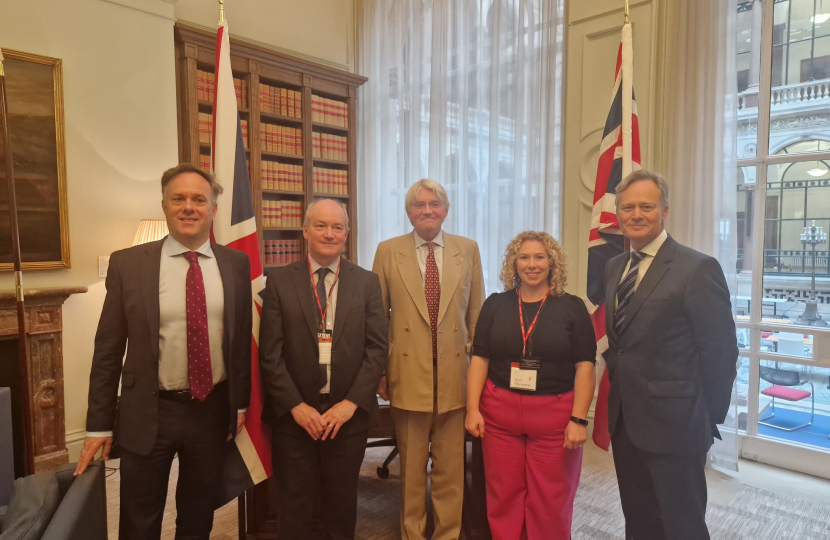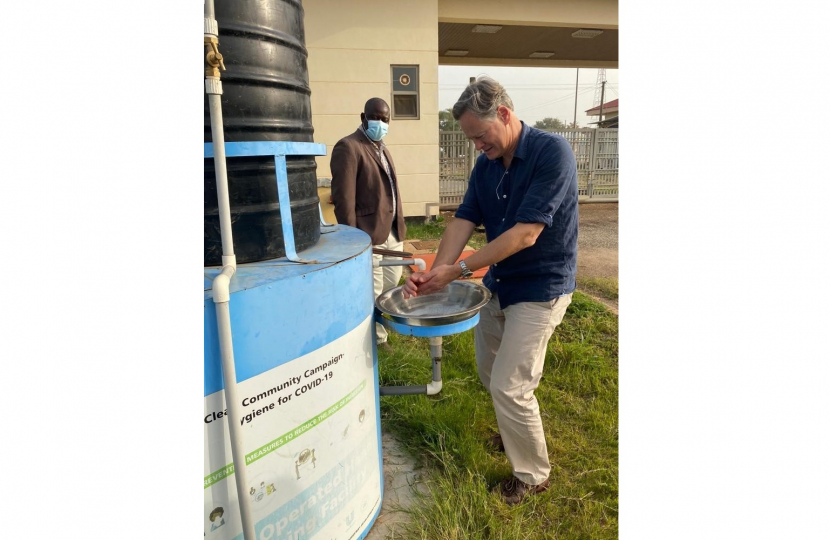Following his visit to Ghana last year, Matthew has met with the Minister for Development to press for action to improve access to water, sanitation and hygiene (WASH) facilities in developing countries.
The World Health Organisation estimate that three-quarters of healthcare-acquired infections could be prevented through hand washing. This basic act helps prevent the spread of infection, reduces sickness and stops the need for antibiotics. These are not only expensive drugs but their over prescription is resulting in a resiliency against infection. It has been estimated that by 2050 an additional 28 million people, mainly in developing counties, could be pushed into poverty by increasing anti-microbial resistance (AMR) and the cost of treatment could top £1 trillion .
Women are particularly exposed to a range of infections due to inadequate WASH. Three quarters of the world’s health and social sector workforce are women, who are at disproportionate risk of contracting infections while working. Additionally, a lack of clean water for safe births mean that 90% of women giving birth naturally are routinely prescribed prophylactic antibiotics, while a greater number of women suffer urinary tract infections in countries where toilet facilities are absent.
But overseas infections also hit the NHS. Most resistant infections treated in the UK originate elsewhere, usually in low and middle-income countries and already cost the NHS at least £2.1 billion a year. This amount will only increase unless the cycle of infection is broken through increased hygiene in the form of water and sanitation. Public health officials in the UK have predicted that AMR will be the leading cause of domestic deaths by 2050 but agree that greater co-ordination between the Department of Health and the Foreign Office could reduce both international and domestic infections.
Matthew said “There are great opportunities in the coming months to reduce the threat of AMR. I have every confidence that the Minister will be promoting the WASH agenda at international summits including the next COP meeting in Dubai and the United Nations General Assembly. I also have high expectations that the forthcoming White Paper on International Development will contain an emphasis on the WASH programme.
"The spending of overseas aid on WASH not only helps some of the poorest people in the world but also has a direct impact upon the United Kingdom and spending by the NHS. This is truly a legacy initiative.”
Matthew is pictured alongside (from left to right) Julian Sturdy MP, Chairman of the APPG on Antibiotics, Dr Nick Brown, Consultant Medical Microbiologist and Director of Public and Professional Engagement at the British Society for Antimicrobial Chemotherapy, Andrew Mitchell MP, Minister of State (Development and Africa), and Helen Hamilton, Senior Policy Analyst for Health and Hygiene at WaterAid; and at a hand washing station at the Upper West Regional Hospital in Wa, Ghana



